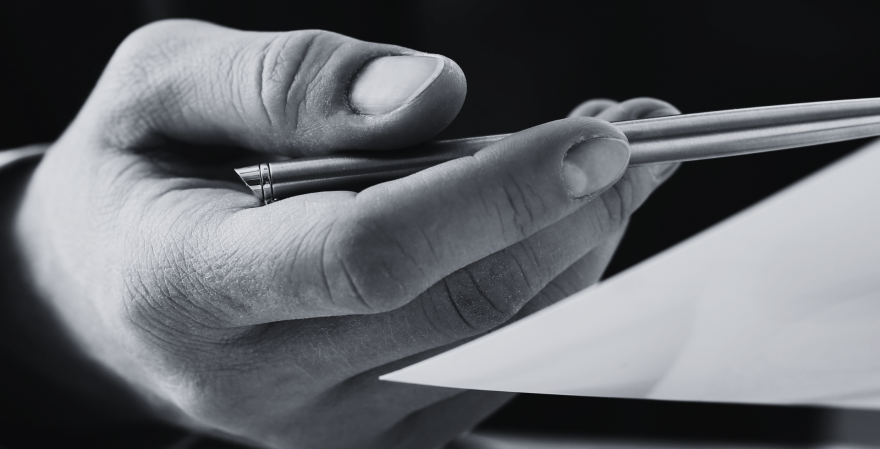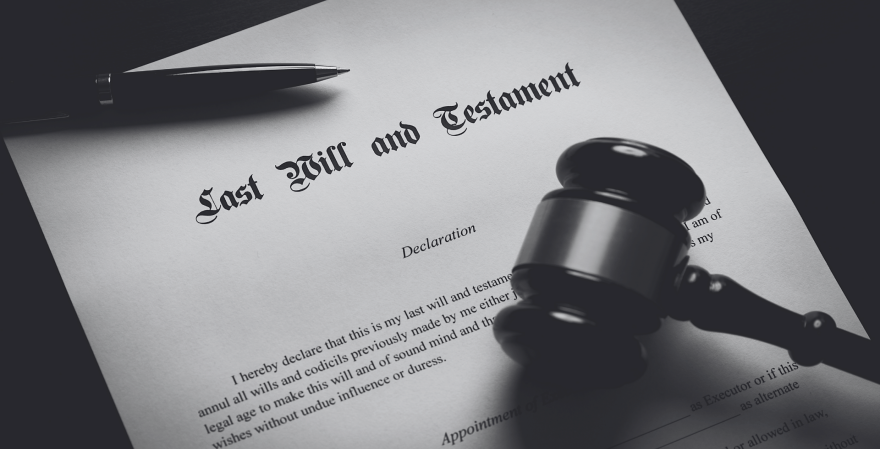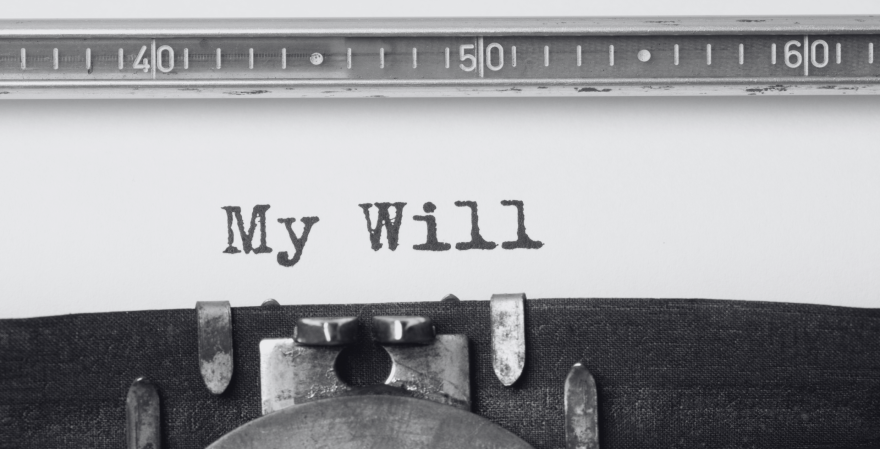General mistakes in a Will

A Will or the Last Testament of a person is an important document. It is a document that will protect and/or take care of the interest of your loved ones and spare them of unwanted delay, costs and unexpected and unsavory acrimony within the family. It will aid in a smooth transition of the title and entitlement of your assets to loved ones as per your wishes.
However, many a times, this important document is seen to suffer from one or more defects or inconsistencies causing the document to be either useless or requiring the legal heirs to sit across and amicably decide on the manner of sharing and distributing the assets of the Testator and initiating suitable legal processes at considerable loss of time and costs. Such a document will at the most serve as a guide to the legal heirs on the desire of the Testator on the manner of distribution of his/her assets but would then need to stamp of a legal process and a court of law.
In most cases, the mistakes are merely oversight or lack of review and/or application of mind and often carelessness and taking matters for granted. However, some of them may be due to ignorance of law or just the wrong attitude towards drafting a good document with clarity. Often, the mistakes are such that they can never be cured or corrected or put in proper perspective by a court of law. Such Wills are rendered useless.
Some of the oft seen mistakes are given here below, not necessarily in any particular order of importance or magnitude or occurrence.
1. A Will or Last Testament that is incorrectly witnessed will be disastrous and more than ever, devastating. It will be liable to be set aside, not accepted by any authority and refused to be acted upon:
- In India, for a Will to be valid and acceptable it, must have been signed/executed by the maker of the Will (referred to as the Testator) in the presence of two people who:
- are both Indian citizens, of 18 years or more in age and
- most important, are not named as legatee/beneficiaries in the Will, or are
married to someone who is a beneficiary or has a partnership or fiduciary
relationship to a beneficiary named in the Will and - are of sound mind and in good health at the time of witnessing the execution
of the Will and finally, - these two witnesses must be physically present at the time of signing the Will,
otherwise the Will shall be deemed void/ invalid.
- As the witnesses cannot benefit from the Will, asking your child or a partner to witness the signing of the said document could potentially disinherit them from the benefits of the Will. Hence, one must ensure that the witnesses have nothing to or no potential to gain anything from the Will.
2. Having contents or details that are not current (generally referred to as “an out of date Will”):
More often than not, many or important life events can change how a Will could work; like for example:
- The birth of another child or even a grandchild (who are important participants
in an Indian family) - A marriage or divorce
- Death of a spouse
- Separation from a Live-In partner
- The loss of a loved one
- Buying a new house or selling a house, etc
It is often seen that many important or major components of a Testators assets that are mentioned in the Will are no longer inexistence while newer assets have been acquired but do not appear in the list of assets and therefore not bequeathed.
Again, the composition of a person’s family might have changed, like for instance marriage or re-marriage, addition of children or death of a spouse or children or parents etc., but no mention of such changes are made in the Will (through a Codicil) or a new will re-drawn. This vitiates the entire document and renders it fully or partly useless and the legal heirs suffer. Quite often, unintentionally, one may not mention the fact of a divorce which may lead to someone not deserving a share in the assets to become entitled.
3. Making changes in the Will once it is executed/signed, dated and witnessed.
- One cannot simply write or scribble a note on the existing Will document or make
alterations anywhere and even try and authenticate such alterations. No
changes/amendments can be made to your Will after it has been signed dated
and witnessed.
- To make changes to an existing Will you will have to make an official amendment
which is called a codicil, or alternatively you should make a new Will altogether,
and clearly state in the opening paragraph of the new Will that the earlier Will
(dated…) is now cancelled/ withdrawn and is null and void.
- A codicil must be signed dated and witnessed in the same way as a Will. There
are no limits to the number of codicils you can add to a Will, although making a
new Will is the best way forward and will be very clear to all concerned. The new
Will shall replace all the earlier Wills.
4. Forgetting Assets: This happens very often and puts every-one in a sort of spot and takes them for a spin.
It is very important that before embarking on a journey to draft a Will, one must sit down and make a list or noting of all the assets that are good, current and desired to be passed on to your loved ones. It is noticed that while most people remember the tangible assets like their car, flat/house, farm land, their precious watch etc, very often, however, they forget some of the more intangible assets like all of the bank accounts (fixed as well as savings), bonds, shares, Mutual funds, life policies, pensions benefits, club membership and any other potential benefits/funds/entitlements one may have.
It may be worth thinking about your digital assets as well that includes your social media accounts, digital photos, music, and other online accounts, passwords to access the bank accounts. It is seen that omitting these intangibles have caused many a harm to families. Courts often find it difficult to amicably decide on such matters.
5. Failure to appoint guardians:
This is yet another glaring loop hole that is often noticed in a Will.
If you have young children, it is important to think about who you would like to care for them after you die. If you are the only surviving parent and you do not choose a guardian for your children in your Will, this decision could potentially go to the family courts who may decide on this matter and this may not be in the best interest of your children. Hence, please ensure this headache does not happen and by name a suitable person who shall perform all tasks as you would have done in the interest of your children. Such a person is referred to, in your Will, as the guardian(s) of your children as long as they are minors.
It is equally important that you inform and take into confidence such a person you so appoint so that he/she knows of her duties as a guardian. In the event of the guardian predeceasing you, it is very important that a fresh appointment be made of another person either through a Codicil or a fresh will.
It is often seen that the guardian so appointed is unaware of the appointment and refuses to accept the role or often finds himself/herself of carrying out the task for some reason or the other.
Failure to appoint a suitable person as a guardian will delay the entire process of awarding the transition of the assets even while your children may suffer for want of access to funds for their general upkeep.
6. Excluding step-children:
If you have step-children with a new spouse/ partner, simply stating “my children” in your Will may lead to confusion and will not automatically cover the Step children. This applies even if you have raised them from birth. If you want your step- children to be included in your Will, make sure you explicitly mention them by their full name and age (DoB) etc and stating, for clarity sake, that they are your step-children.
Legally adopted children will be considered the same as biological children, however.
7. Forgetting the name of the Executor or appointing inappropriate Executors
An Executor is a person appointed by a Testator to take care of matters of administration of your assets/estate after the death of the Testator. Accordingly, and as per law an Executor is vested with the responsibility to carry out the deceased Testators wishes, as written down in the Will. There can be more than one Executor appointed by the Testator.
While it is preferable to appoint a member of the family and/or friends as the executor/s of the will, often people also appoint professional executors (a solicitor form) or Chartered accounts to play the role of an Executor.
It is however, often noticed that Testators forget to name Executors in their Will. In such an event, the court dealing with the Probate application will appoint an executor, who then will surely will not be the deceased persons first choice. The Beneficiaries may also not be too pleased to have all their family matters, especially the financials and landed assets be placed before an unconnected person who and they will not perhaps be willing to discuss many aspects with such an outsider, who might not be too well disposed to make proper application of the various aspects of the Testators wishes as contained in the Will especially if there are any soft issues involved. He may not also apportion sufficient time as he will be otherwise busy or generally disinterested but will be doing so only because of the court mandate. It should be noted that hold ups will occur when you appoint someone who lives abroad, or someone who simply does not feel capable of carrying out your wishes due to not having the time or is generally disinterested.
To avoid such a situation, a Testator must ensure he/she not only appoints an Executor but also an appropriate Executor to fulfil you’re his/her wishes.
8. Not mentioning details of your assets with clarity
While in your anxiety to include as many of your assets as possible in the Will and ensuring the distribution as per your wish and on what and to whom you feel it fit, often the Testator fails to be clear as to the basic details of the assets sought to be bequeathed. For example:
If a house or flat is decided to be bequeathed to Child No 1, then all details of the flat like Flat No (state clearly), floor No, building or society name, address of the building, location, if possible the nearest Post office and nearest landmark, shall be mentioned.
If it is a stand-alone house in a plot of land, or a farm land etc, then basic details of the land like Survey No, ward No, ,location, ie, town/ village, state, name of road if any and where possible the title deed date and purchase deed registration No and date of registration and place of registration and the name of the person from whom you had acquired the asset, whether freehold or lease.
Similarly, if it is a bank deposit, then state clearly the name of the bank, branch address, nature of deposit and the current account number and the approximate amount of each of the deposits as on the date of the Will If it is a annuity/pension to be received then the pension number, details of the pension paying authority and the address of such institution paying the pension etc shall be stated so that the continuity of the pension or receipt of a lumpsum payment in the name of the beneficiary can be ensured.
It is often seen that for want of clarity or details of the assets so bequeathed, the Executor is incapable of laying his hands
distribution becomes impossible or time consuming or even impossible, much to the disappointment of the beneficiaries/loved ones. Very often it is seen that such lack of clarity has led to claims and counter claims among the legal heirs and disputes among the otherwise amicable family which ends up with contest in a court of law at huge costs to the legal heirs and considerable passage of time.
Hence, the details of each asset shall be precisely and clearly mentioned in
the Will.
9. Not retaining the original copy of the Will or even misplacing the original Will document.
Many people make photocopies of their will thinking that this is valid. However, your executors will need the original copy of the Will to legally administer your estate. Further, all the officials who are to act on the contents of the Will document, will definitely ask to be shown the original document. The Will document should therefore be in your own custody or placed safely somewhere or with someone that you can easily retrieve it.
Without the original, your executors may run into a bit of trouble getting a grant of probate to manage your affairs. Banks and Registrars of land will need the original document.
It is commonly referred to as “Location of the Will”
Hence, someone should know where you had placed the Will document. You may utilise the services of Will Location Registration facilities offered by entities like Will & More in India or Certainty in the UK or such others in countries like Singapore or the US.
10. Lacking mental and physical capacity:
Perhaps the main grounds on which disputes can arise when someone contests or challenges the Will is as to whether the deceased had full capacity when they executed the Will OR that there was no undue influence or compulsion or coercion from someone at the time of you drafting and executing the Will. This means you as the maker of the Will (Testator) will need to be of sound mind when making it and this should be explicitly shown or documented. One way to prove this is by the presence of the Two Witnesses at the time of the execution of the Will and these two witnesses will be able to testify before a court (on oath) that they have witnessed the execution of the Will by you and that there were not undue influences or threat acting against you. Additionally, it is always suggested that you also sign the Will in the presence of a qualified and licensed medical professional and obtain a certificate from him that you have, at the time of signing the Will, been of good mental and physical health and that you are not under the influence of drugs or alcohol. A copy of this medical certificate stating that he was present at the time of execution shall be obtained and attached to the Will document.
11. Making a mention of your debts and Tax liability:
Every Executor (as well as all your Beneficiaries) will need to know the details of your outstanding debts and obligations so that they can factor in these amounts for appropriation from your assets to pay off your debts before the final distribution. It is the duty of the Executor to settle and pay off the debts and taxes before an estate is distributed lest the loanees or tax man come after the beneficiaries at a later stage.
12. Not making a Will at all:
In our opinion, this is the biggest mistake of all!
If you were to die without a Will you will have died intestate. That is the position in law.
Intestacy, which is state where a person who dies without having made a valid Will and his estates shall therefore be subject to and all his legal heirs and may be other claimants will need to follow a certain set of rules laid down by law which may include the laws of the religion to which he/she belonged which stipulates
how the estate is to be administered if there is no Will.
Consequently, the distribution of the assets/estate may not be to what the
deceased had actually intended but unfortunately such wishes were not deduced
by him/her into writing. Not an ideal situation at all.
That is why one should make a Will.
And a valid Will. Clearly avoid mistakes and lapses and do not make your
loved one’s fret and frown at you long after you have gone away!




